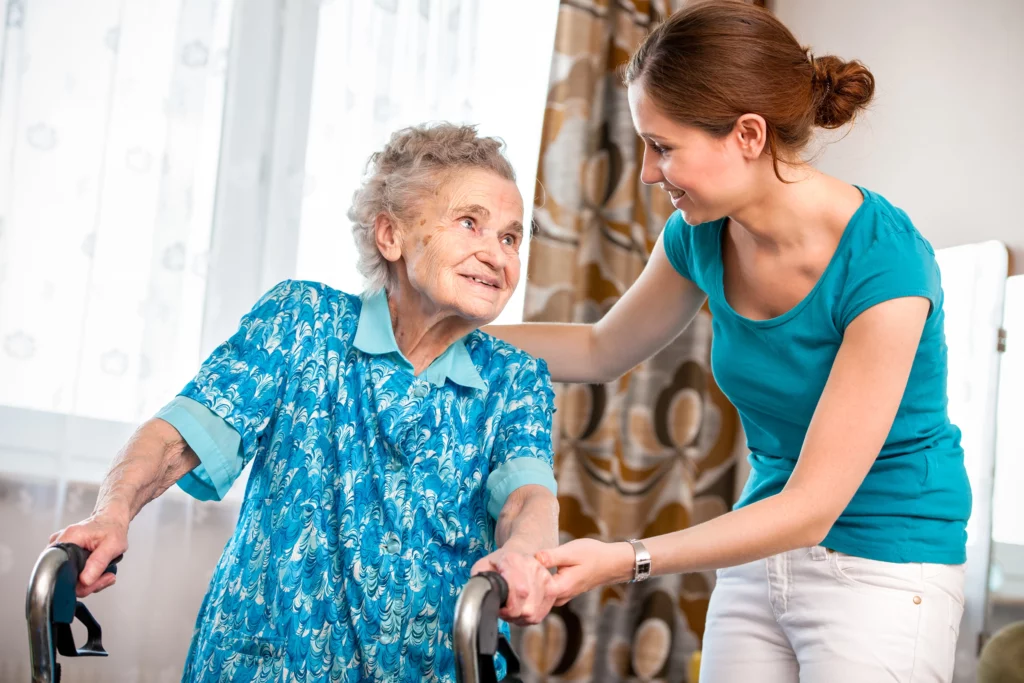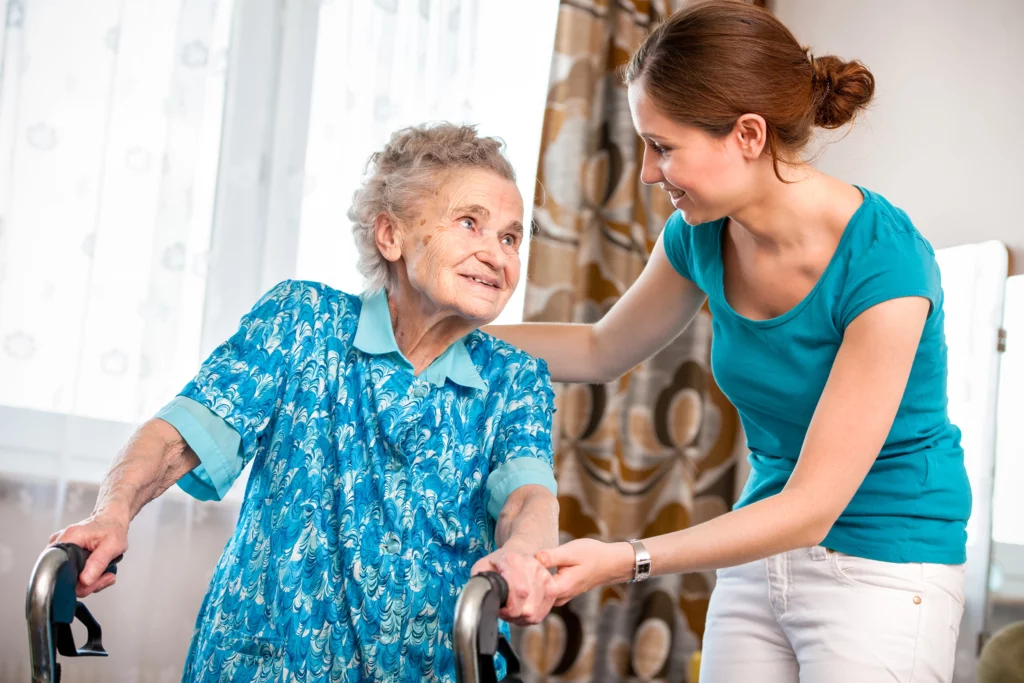
Adult Day Care Programs for Lewy Body Dementia Patients
This post may contain affiliate links or Google Ads and we may earn a small commission when you click on the links at no additional cost to you. As an Amazon Affiliate, we earn from qualifying purchases. This is at no additional cost to you and helps with our website expenses.
Lewy Body Dementia is a movement and cognitive decline that can negatively impact an individual’s ability to perform everyday tasks. While there is no cure for dementia, there are treatments that can help to improve and manage the quality of life for those living with the disease. One such treatment is adult day care programs for Lewy Body Dementia.
Adult Day Care Programs for Lewy Body Dementia: What are they and how do they help?
Adult day care programs are designed to provide a structured environment for people with Lewy Body Dementia. These programs can help improve the quality of life for people with dementia by providing social and recreational activities, as well as opportunities for cognitive stimulation.

Adult day care programs can also help caregivers by giving them a break from their caregiving duties. Respite care can be an important part of the support system for caregivers, and can help prevent burnout.
There is evidence that adult day care programs can improve the symptoms of Lewy Body Dementia, and that they can also delay the need for institutionalization. If you are considering an adult day care program for a loved one with Lewy Body Dementia, be sure to ask about the program’s philosophy and approach to care, as well as its staff qualifications.
While it is important to be on the lookout for red flags, such as poor quality care or staff who are not trained in dementia care, you should also give your loved one the opportunity to explore the program before deciding whether or not it is the right fit.
Key Components of Successful Adult Day Care Programs
There are many key components of successful adult day care programs. First, the program should have a clear purpose and goal. The program should also be designed to meet the needs of the specific population it is serving. For example, a program for people with Lewy Body Dementia (or other types of dementia) should be designed to meet the unique needs of this population.
Second, the program should have well-trained and experienced staff. The staff should be able to provide high-quality care and support to the participants. They should also be able to create a warm and welcoming environment.
Third, the adult day care program should offer a variety of activities and services. These activities and services should be tailored to meet the interests and needs of the participants. They should also be designed to promote socialization, cognitive stimulation, and physical activity.
Fourth, the program should have a good location. The location should be accessible and easy to get to. It should also have a safe and comfortable environment. Some programs have enclosed outdoor spaces as an added bonus!
The quality of adult day care programs can vary greatly. The setting, activities, and staff all influence the quality of these programs.
Qualities to Look for in Adult Day Care Programs for Lewy Body Dementia
As the primary caregiver for a loved one with Lewy body dementia, you may be considering an adult day care program to provide respite care. When choosing a program, there are certain qualities you should look for to ensure your loved one will receive the best possible care.
What to call day care? There are some people that feel like the word “day care” infantilizes them. You don’t have to call it day care! Some call it the “center”. Others refer to it as the “program”. I’ve even heard some refer to it as “camp”.
Author
The program should have a staff of qualified and compassionate caregivers. The caregivers should be trained in how to best care for those with Lewy Body Dementia, as the disease can present unique challenges. They should also be patient and understanding, as those with the disease can often become agitated or confused.
The program should also offer a variety of activities designed to engage and stimulate those with Lewy Body Dementia. The activities should be tailored to the individual’s abilities and interests, and they should change on a regular basis to keep things fresh. The program should be run out of a safe and secure facility. This is particularly important for patients with Lewy Body Dementia, as they can become easily disoriented or agitated. Their caregivers should know how to handle such situations and maintain a safe environment at all times.
How to Choose the Right Program
When it comes to choosing the right adult day care program for a loved one with Lewy Body Dementia, there are a few key things to keep in mind. First and foremost, you want to find a program that is reputable and has experience caring for those with this type of dementia.
You will want to make sure that the program is able to meet your loved one’s individual needs and provide the level of care they require. Inquire about the staff-to-attendee ratio.
If possible read any online reviews available or better yet, talk to the loved ones at the program to get an honest opinion. A referral from someone whose loved one is attending will guide you the most in making the important decision.
Lastly, you’ll want to be sure that the program is affordable and within your budget. With these factors in mind, you’ll be well on your way to finding the perfect adult day care program for your loved one with Lewy Body Dementia.
As you can see, there are many factors to consider when choosing an adult day care program for a loved one with Lewy body dementia. By keeping these points in mind, you’ll be able to choose the perfect program that will best meet your loved one’s needs and care requirements.
Activities at Adult Day Care Programs
Adult day care programs are designed to provide a safe and supportive environment for adults with Lewy Body Dementia. These programs offer a variety of activities that can help participants stay active and engaged, while also providing social and emotional support.
Some of the activities that are typically offered at adult day care programs include:
- Arts and crafts
- Music therapy
- Cognitive games and activities
- Physical activities and exercise
- Socialization
- Support groups
- Pet therapy
- Meditation
- Holiday parties
- Meals and snacks
These activities can help improve symptoms of Lewy body dementia, while also providing a much-needed break for caregivers.
Type of Illnesses that People have that Attend Adult Day Care Programs
There are a variety of people that attend adult day care programs, not just Lewy Body Dementia. Generally, there are people with Alzheimer’s disease, Parkinson’s disease, traumatic brain injury and stroke victims, among others. The staff is trained to help people with a variety of disabilities.
Licensing for Adult Day Care Programs
As the number of Americans diagnosed with Lewy Body Dementia (LBD) continues to rise, so does the demand for adult day care programs that can provide care and support for patients and their families. While there are many great programs out there, not all of them are licensed or accredited.
Here are some things to keep in mind when looking for a licensed adult day care program for a loved one with LBD:
- Licensing ensures that the program meets certain quality standards. This means that the staff is properly trained and that the facility is clean and safe.
- Accreditation is another way to ensure quality. This is a voluntary process that goes above and beyond licensing requirements. Programs that are accredited have been vetted by an independent body and have met even higher standards.
- Look at the licensing and accreditation paperwork. The license or certificate should have the name of the program, the date it was issued and the address of the facility.
- Check online reviews of your program.
- Ask the school to provide proof of accreditation by a recognized agency, such as the Accrediting Council for Independent Colleges and Schools (ACICS).
How to Prepare Your Loved one to go to Adult Day Care Programs for Lewy Body Dementia
If you are considering an adult day care program for your loved one, there are a few things you can do to prepare them. First, explain the program to them in simple terms and let them know that they will be safe and well-cared for. Next, visit the facility together so they can see where they will be spending their days. Finally, make sure to pack any personal items they may want or need, such as a change of clothes.
There are a few people at my husband’s day program whose loved ones tell them that they have a job there. One has even gone as far as showing them fake deposits in their bank that she says are his payments. Others have said that their VA benefits require them to go. Although these are little white lies, when you are caregiving for someone with dementia it doesn’t hurt — especially if it helps them.
Author
Who Pays for Adult Day Care Programs? Is there Assistance Available?
Adult day care programs are a vital service for many older adults, particularly those with Lewy Body Dementia. But who pays for these programs, and is there any financial assistance available?
According to Aging in Place, the median per day cost is $69 per day. These rates vary per location and are not uncommon to reach close to $100 per day. That can be a significant financial burden for many families.
Fortunately, there are some options available to help offset the cost of adult day care. The first is to check with your state’s social services department to see if there are any programs that can help cover the cost of care. Additionally, some private insurance plans now offer coverage for adult day care services. Some long-term care insurance policies cover this also.
One of the benefits available to Veterans is paying for adult day care programs. They have respite programs that might help pay. There are also other caregiver benefits that include paying for adult day care programs. Talk with your Veteran’s social worker about what benefits are available.
What Type of Staff is at Adult Day Programs?
Most programs have a program director that oversees all of the staff. There is usually a nurse on staff to monitor any health concerns and dispense necessary medications. Other staff may include activity directors. Aides are often there that can help with any activities of daily living, like toileting, mobility assistance, and meal preparation. The staffing requirement is not as strict as for medical facilities.
One thing my husband has enjoyed at his program is when children from local schools come in and do crafts with them. The interaction between the young and the old is precious.
Author
Do Adult Day Care Programs Provide Transportation?
Many programs do offer transportation from home and back. There is generally an extra charge for this. They have vehicles that can take wheelchairs and other assistive devices. Some programs provide transportation for special events such as shopping, dental appointments and trips to the library.
Are the Adult Day Care Programs for Lewy Body Dementia at Secure Locations?
In recent years, there has been an increase in the number of adults with Lewy Body Dementia who are enrolled in day care programs. While these programs can provide much-needed respite for caregivers, it is important to ensure that the facilities are secure. Since wandering can be an issue for those with dementia it is important that the locations are secure. The staff should be able to monitor the whereabouts of the person. Doors should have alerts when someone enters or leaves.
Our experience with an adult day care center for my husband that has Lewy Body Dementia has been absolutely wonderful. He has made new friends, gained cognizant abilities, exercises every day, and loves all of the staff. He goes four days a week and is always anxious to go.
Author
In conclusion. Adult day care programs can be a great option for those with dementia as well as giving the caregiver respite. However, it is important to choose the program carefully. Make sure to visit the facility and meet with the staff before making a decision.




